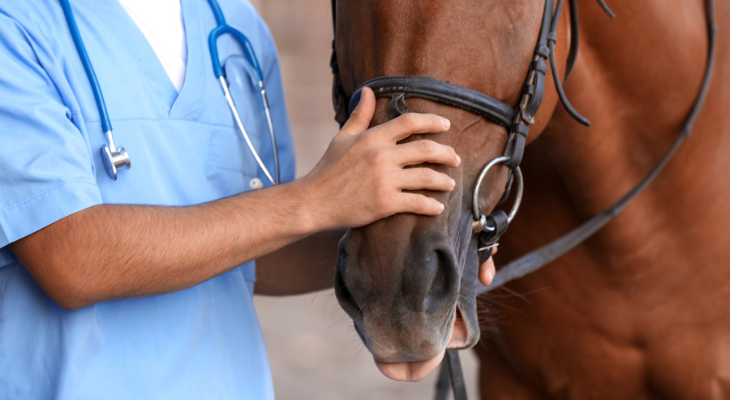
The Importance of Shoes for Your Horse
Wondering if your horse really needs shoes? Shoeing offers a variety of advantages, including these important benefits:
Fewer Injuries
Your horse's hooves may be tough, but they're not invincible. Stepping on a jagged stone or walking on hard surfaces may cause a variety of injuries, including bruises, bursitis, and cracked, split or chipped hooves. If bacteria enters a crack or split in the hoof, your horse could develop an abscess, a painful bacterial infection.
Abscesses can cause lameness and can spread to the leg without treatment. Infections increase the risk of laminitis, a condition that occurs when the soft tissue that connects the pedal bone to the hoof becomes inflamed.
Horseshoes can't completely prevent hoof injuries, but they do reduce the risk of a potentially serious injury or infection. If you have a horse prone to weak hooves, such as thoroughbreds or Paint horses, shoes are a must. Without horseshoes, these horses may be more likely to injure their hooves.
Better Traction
Even a slight stumble on uneven or slippery ground can lead to a devastating fall. Shoes provide more traction and decrease the risk of a pulled muscle, fractured bone or head injury due to a fall. If your horse regularly walks on muddy or slippery surfaces, your farrier may recommend welding a composite or tube rod to the shoes for extra traction. Other ways to increase traction include adding rim shoes, studs or heel caulk.
Reduced Joint Stress
Does your horse have arthritis? Shoes could reduce wear and tear on the joints and decrease your horse's comfort. According to a 2019 article in The Horse, shoes can improve side-to-side balance of the hooves, which eases stress on the joints. Shoes also help distribute shock evenly over the foot and keep the heels properly positioned.
A Solution to Foot Issues
Horseshoes may improve your horse's gait and decrease complications due to physical defects. A horse that has balance issues could benefit from shoes that adequately support the hoof capsule. Shoes can play an important role in ensuring proper foot and leg development in foals and may improve conformity by offering additional support.
If your horse has laminitis, wearing shoes can prevent the condition from worsening, keep the pedal bone properly aligned, and make your horse more comfortable. Ringbone, Cushing's disease, white line disease and other conditions may also affect your horse's hooves. If your horse has a chronic disease or condition, ask your equine veterinarian is shoeing would be helpful.
Protection for Hard-Working Horses
Shoes provide extra support and traction for for working horses and horses that compete in equestrian events. The shoes are particularly important if your horse walks or runs on a variety of surfaces when working, competing, or practicing.
The type of shoes your horse needs will depend on the event, the surfaces your horse encounters, and the amount of grip and support needed. Your equine veterinarian can work with your farrier to find the best shoes for your horse's activity level.
Want to find out if shoeing could help your horse? Call us to schedule an appointment with the equine veterinarian.
Sources:
American Farriers Journal: Farrier Tips: Basics of What to Apply to Shoes for Traction, 4/14/2012
The Horse: How Healthy Horse Hooves Help Arthritic Joints, 10/18/2019
https://thehorse.com/110605/hooves-helping-joints/
Practical Horseman: To Shoe or Not to Shoe?, 9/4/2018
https://practicalhorsemanmag.com/health-archive/to-shoe-or-not-to-shoe/
Horse & Hound: H&H Question of the Week: to Shoe, or Not to Shoe – Should My Horse Go Barefoot? 3/2018
https://www.horseandhound.co.uk/features/why-do-horses-need-shoes-645314
Horse & Country TV: Do Horses Need Shoes? The Pros and Cons of Shoeing
https://horseandcountry.tv/en-us/why-do-horses-need-shoes-horse-shoeing-guide
